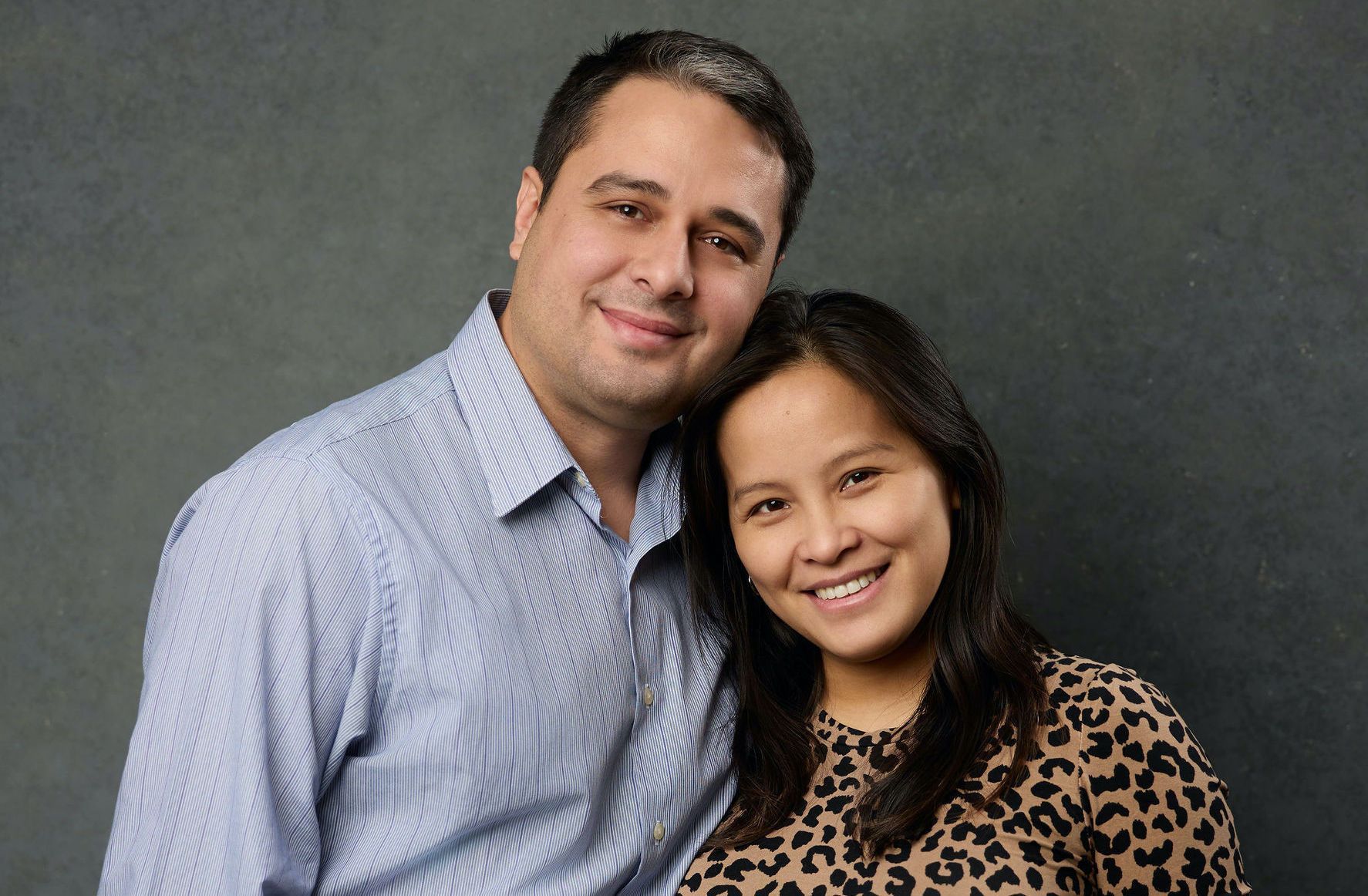US Citizen's Guide to the Immigrant Visa Process for a Spouse or Fiance in Kuwait City

This Blog post will cover what a US Citizen needs to know about the Immigration process for a Spouse or Fiance in Kuwait. Based on our law firm experience, Kuwait filing have an even mixture of the Spouse of Fiance being (1) Kuwait Citizen, (2) Philippine Citizen, or (3) a citizen of another country. With this in mind, we will try to cover the document requirements and process more broadly. Additionally, Numerous Active Duty Service Members and DOD Contractors appear to be stationed in Kuwait, at Camp Arifjan (AJ).
Some common topics can be seen here:
What is better: K1 Visa or CR1/IR1 Visa
The K1 visa is for Fiances, whereas the CR1 and IR1 are for spouses. To the question of which is better, the CR1/IR1 is:
- cheaper
- 2x - 3x quicker
- prioritized at the Embassy or Consulate
- instantly allows employment, international travel, driver's license, and social security card
The purpose of the K1 is to "test the relationship in the US," as most recipients cannot enter the US on a tourist visa, and the US Citizen cannot travel abroad to try the relationship "in-person" overseas.
If the Fiances are in Kuwait together, the relationship has sufficient "testing" and the relationship is likely reaching or has already reached to the level of marrying.
A little more information on the downsides of the K1 Fiance Visa can be seen here:
Is it hard to get married abroad?
No, every embassy generally has guidance on what is required to marry overseas. For instance:
The US Embassy in Kuwait states: https://kw.usembassy.gov/marriage-in-kuwait/
Additionally, a Utah Marriage that occurs with both spouses overseas may be simpler in providing a "US-Based Marriage Certificate." More information can be seen here: https://www.fickeymartinezlaw.com/immigration/virtual-utah-marriage-alternative-to-a-proxy-marriage-for-immigration-purposes
Information on the Kuwait Free-To-Marry Affidavit:
Embassy Website HereAny foreigner who wishes to marry in Kuwait is required by the Government of Kuwait to demonstrate his or her eligibility to marry. The U.S. Government does not maintain a central marriage registry. Therefore, the embassy is unable to provide verification of a U.S. citizen’s eligibility to marry. U.S. citizens seeking to marry in Kuwait may choose to complete an affidavit declaring he or she is eligible to marry. However, the Government of Kuwait may not find the document acceptable and may refuse to accept the document. Please note the embassy cannot make changes to the document. U.S. citizens seeking to marry in Kuwait may need to contact the custodian of records or the respective state agency to identify vital records in the U.S. that may meet the criteria for the Government of Kuwait. U.S. citizens obtaining certified vital records from the custodian of such records will need to follow the process for the authentication of documents in the United States.
Contact Information for every US Vital Statistics Office can be located here: https://www.cdc.gov/nchs/w2w/index.htm
After the appropriate document is located, the Office of Authentications at the DOS may be required to Authenticate the document. More information found here: https://travel.state.gov/content/travel/en/replace-certify-docs/authenticate-your-document/office-of-authentications.html
Non-Muslims who would like to marry in Kuwait in a civil marriage ceremony may:
- Visit the ACS Notary Services page for information and requirements for notary appointments. Click here to review the update on notary services for the “Free to Marry” affidavit below.
- After reviewing the information on the notary services main page, if you still wish to proceed, complete the attached “Free To Marry” affidavit form. This form must be notarized by the Consul at the U.S. Embassy (do not sign the affidavit until you appear in front of a Consular Officer). Do not make any changes to the format of the document. There is a non-refundable fee of $50 (or KD equivalent) for each document notarized by the Embassy. Note: When two U.S. citizens wish to marry, both are required to complete separate “Free to Marry” affidavits. Foreign nationals must contact their respective Embassies to seek similar assistance.
- The Authentication Office at the Ministry of Foreign Affairs of the State of Kuwait must then authenticate the “Free to Marry” affidavit. The Ministry of Foreign Affairs is in Shuwaikh next to the Kuwait News Agency. The office is open from: 7:30 AM to 12:00 PM, telephone: 2243-0541.
- The “Free to Marry” affidavit must be translated into Arabic. The Embassy cannot translate documents, but can provide a list of translators.
- Take the “Free to Marry” affidavit with the Arabic translation to the Office of the Public Notary in the Ministers Complex for the marriage ceremony. Address: Murgab area, Ministries complex, ground floor, Block no. 15, room 25, telephone: 2248-6444. The office is open on Sundays and Wednesdays from 7:00 AM to 12:00 PM. Two male witnesses are required. Make sure that the witnesses carry either their passports or valid identifications (someone with a Kuwait civil ID is preferable) with them. Take photocopies of the identifications for all parties involved.
Embassy Guidance can be found here: https://kw.usembassy.gov/marriage-in-kuwait/
Where can I get information regarding the Kuwait Birth Certificate, Police Certificate, or Marriage Certificate?
The NVC provides guidance for every country. For Kuwait, the following link provides thorough information:
https://travel.state.gov/content/travel/en/us-visas/Visa-Reciprocity-and-Civil-Documents-by-Country/Kuwait.html
Note, someone that has resided in a country for more than 6 months after the age of 16, would require a Police Certificate from the Country. The database of every country can be found here: https://travel.state.gov/content/travel/en/us-visas/Visa-Reciprocity-and-Civil-Documents-by-Country.html
Can my Philippine Fiance or Spouse acquire Philippine Documents while abroad?
YES, 100% YES.
Since so many filipinos reside abroad as OFWs, the local Philippine Embassy can assist and provide guidance in acquiring common documents, such as:
- PSA Birth Certificate
- PSA CENOMAR
- PSA Marriage Certificate and/or Advisory of Marriage
- NBI Clearance
The PSA Birth Certificate can be ordered and mailed internationally. More information can be seen here: https://www.fickeymartinezlaw.com/immigration/psa-philippine-birth-certificate
The NBI Clearance is similar to a Police Certificate/FBI Background Check. The Philippine Embassy can assist with fingerprinting and can provide more information. Filipinos in the Philippines normally proceed to any NBI Clearance Outlet. For a complete list of NBI outlets, please visit this link: https://www.nbiclearance.org/how-to-apply-for-nbi-clearance/
A more thorough Guide on Filipinas abroad from the Philippines can be seen here: https://www.fickeymartinezlaw.com/immigration-topic-philippine-fiance-or-spouse-living-outside-of-the-philippines-and-how-to-immigrate-to-the-us
Where can I find Embassy or Consulate instructions for the Visa?
Our office has compiled Instruction links for nearly every US Embassy or Consulate, based on world region:
https://travel.state.gov/content/travel/en/us-visas/Supplements/Supplements_by_Post/KWT-Kuwait.html
If you wanted to find the instructions for other nearby parts of the world, a quick shortcut can be found below:
Bahrain, Egypt, Iraq, Jordan, Kuwait, Lebanon, Libya, Mauritania, Morocco, Oman, Palestine, Qatar, Saudi Arabia, Sudan, Syrian Arab Republic, Tunisia, United Arab Emirates, and Yemen:
China, Hong Kong, Japan, Macau, Mongolia, South Korea, and Taiwan:
Bangladesh, Bhutan, Brunei, Cambodia, India, Indonesia, Laos, Malasia, Myanmar/Burma, Nepal, Philippines, Singapore, Sri Lanka, Thailand, Timor-Leste, and Vietnam:
Iran, Kazakhstan, Kyrgyzstan, Pakistan, Tajikistan, Turkmenistan, and Uzbekistan:
My Fiance or Spouse was denied a Tourist Visa. Is that going to be a problem?
No, as long as no fraud occurred.
A visa would be required, and you would normally pursue K1 or CR-1/IR-1 Immigrant Visas.
What happens if a Wife is pregnant with a US Citizen’s Child?
Many believe the baby or newborn would need a visa to enter the US. However, that is normally not the case.
Any children of a US Citizen may already be US Citizen at time of birth and should use a US Passport for travel.
The Consular Report of Birth Abroad (CRBA) Process can be found at any local US Embassy or Consulate. The process provides the US Citizen child:
- US Passport
- US Social Security Card
- proof of US Citizenship in the form of a CRBA Certificate that will never expire
What are the Steps of a K1 Visa Process?
Step 1: I-129F Petition filed with USCIS
Step 2: DS-160 K-1 Fiancee Visa application filed with the US Embassy or Consulate that handles Immigrant Visas, which allows the fiancee to enter the US
Step 3: I-485 Adjustment of Status filing with USCIS to receive a Green Card
What are the Steps of a CR1/IR1 Visa Process?
The IR-1 / CR-1 Spousal Immigrant Visa is the visa that would allow a spouse to immigrate to the US.
The process has 2 basic steps:
Step 1: Petition
Step 2: Visa Application
However, it is better to understand through the following breakdown:
Part 1 – Petition to Recognize the Relationship – Submit the I-130 Electronically
Part 2 – Waiting Period – I-130 Pending awaiting a USCIS Officer to review the filing and supporting documents
Part 3 – NVC Processing – Visa fees are paid online, DS-260 completed, and supporting documents uploaded.
Part 4 – Consulate Interview – NVC provides Interview day and time, Consulate Account Registered, Medical Performed, Documents Organized, and Interview Attended.
Part 5 – Arrive in the US – Pay Immigrant Fee, Fly to the United States, Apply/Receive US Social Security Card, and Receive Green Card in the mail within 3-4 months after entry.
What is the Difference Between CR1 and IR1?
In Short, the Length of the Marriage determines which visa is received.
For marriages under 2 years at time of visa interview, a CR-1 is provided. For marriages over 2 years at time of visa interview, an IR-1 is provided.
CR-1 creates a 2-year Green Card conditioned on the Marriage continuing for another 2 more years and the marriage being evaluated years later in an I-751 filing.
IR-1 creates a 10-year Green Card without any conditions.
When can my Spouse become a US Citizen?
Usually, a spouse must hold the Green Card (aka Lawful Permanent Residence Status) for 3 years before they can qualify for US Citizenship.
A spouse CANNOT just apply for a US Passport after marrying a US Citizen. (Common question from US Citizens)
HOWEVER, since most inquiring at our office are Active Duty Service Members or DOD Contractors, the following option might be worth considering:
US Citizen is an Active Duty Service Member or DOD Contractor, can the spouse come to the US expedited?
Generally, no!
If the Service member has been abroad overseas for 3 years, USCIS would expect the marriage to occur sometime BEFORE a few weeks or months from receiving orders to return to a US Base.
If you marry a few days or weeks prior to leaving, the Spouse is usually required to either remain in that country (if they have a valid employment visa) or return to the Philippines or their home country (if they converted to a SOFA Visa).
DOD Contractor can be abroad for 5-10 years, and contracts can always be renewed. The Spouse will normally need to go through the CR-1/IR-1 Spousal process, and then may consider the following option: https://www.fickeymartinezlaw.com/immigration/ine-319b-naturalization-option-spouses-of-u-s-citizens-employed-or-stationed-abroad
Have a Quick Question? Message Us!
What is the normal processing time?
For the K-1 Visa, here are the following rough estimates:
- I-129F Petition: 1 to 1.5 Years to process at USCIS
- NVC Transfer: 2-4 Months
- Kuwait City DS-160 Visa Application Processing: Within 1-4 months
- 90 Days to Marry in the US
- I-485 and I-765: 1-5 Years (depends heavily on where you live in the US)
For the CR-1/IR-1 Spousal Visa, here are the following rough estimates:
- I-130 Petition: 1 to 1.5 Years to process at USCIS
- NVC Processing: 2-4 Weeks
- Kuwait City DS-260 Visa Application Processing: Within 1-4 months
- Immigrant Fee/Green Card Printing: within 4 months AFTER entry in the US (However, the CR-1/IR-1 has a 1 year Temporary Green Card placed in the Passport)
What Documents are recommended?
For the K-1 Fiance Process, more guidance can be seen here: https://www.fickeymartinezlaw.com/immigration/k-1-fiance-visa/i-129f-fiance-visa-how-to-prove-your-relationship-to-uscis
For CR-1/IR-1 Spousal Processing, more guidance can be seen here: https://www.fickeymartinezlaw.com/immigration/immigration-checklist-what-our-law-office-generally-recommends
If you would like to set up a Consultation to Speak with the Immigration Attorney, please feel free to contact our office.
Disclaimer: This Blog is made available by the lawyer or law firm publisher for educational purposes only as well as to give you general information and a general understanding of the law, not to provide specific legal advice. By using this blog site you understand that there is no attorney-client relationship between you and the Blog/Web Site publisher. The Blog should not be used as a substitute for competent legal advice from a licensed professional attorney in your state.












